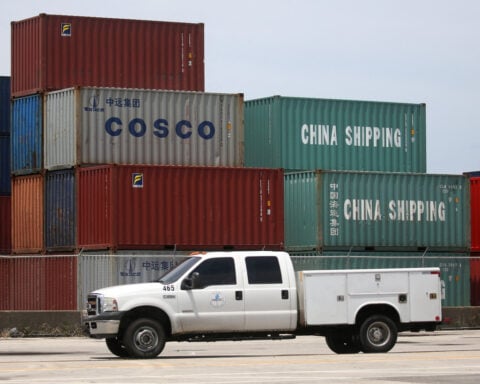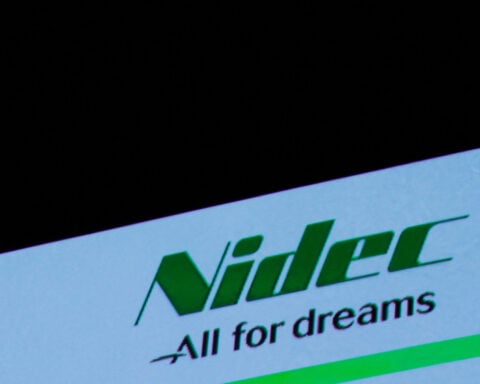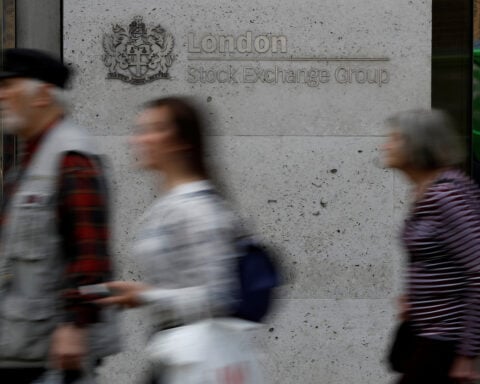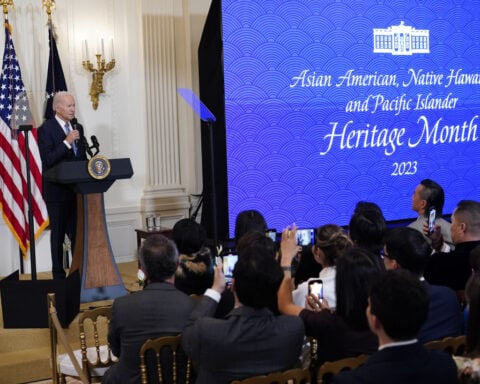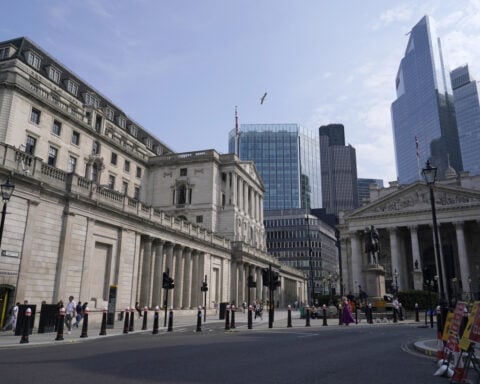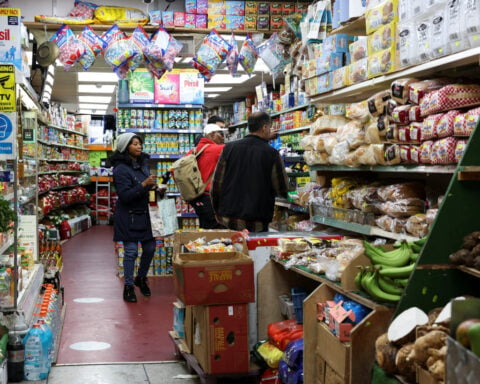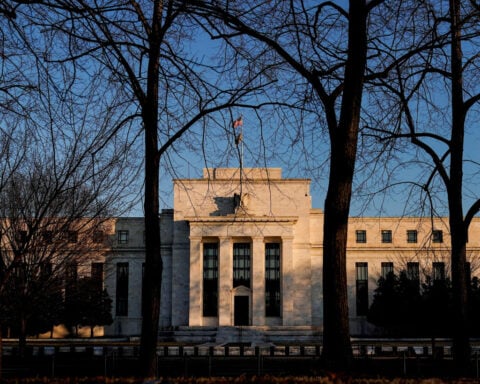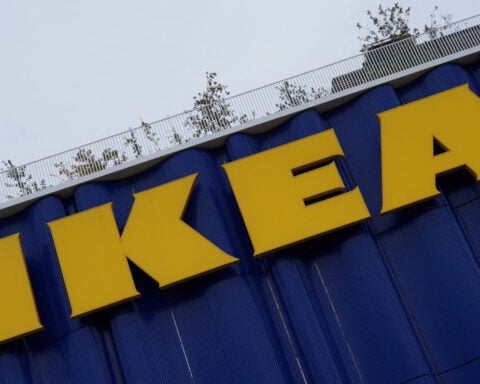By Gram Slattery
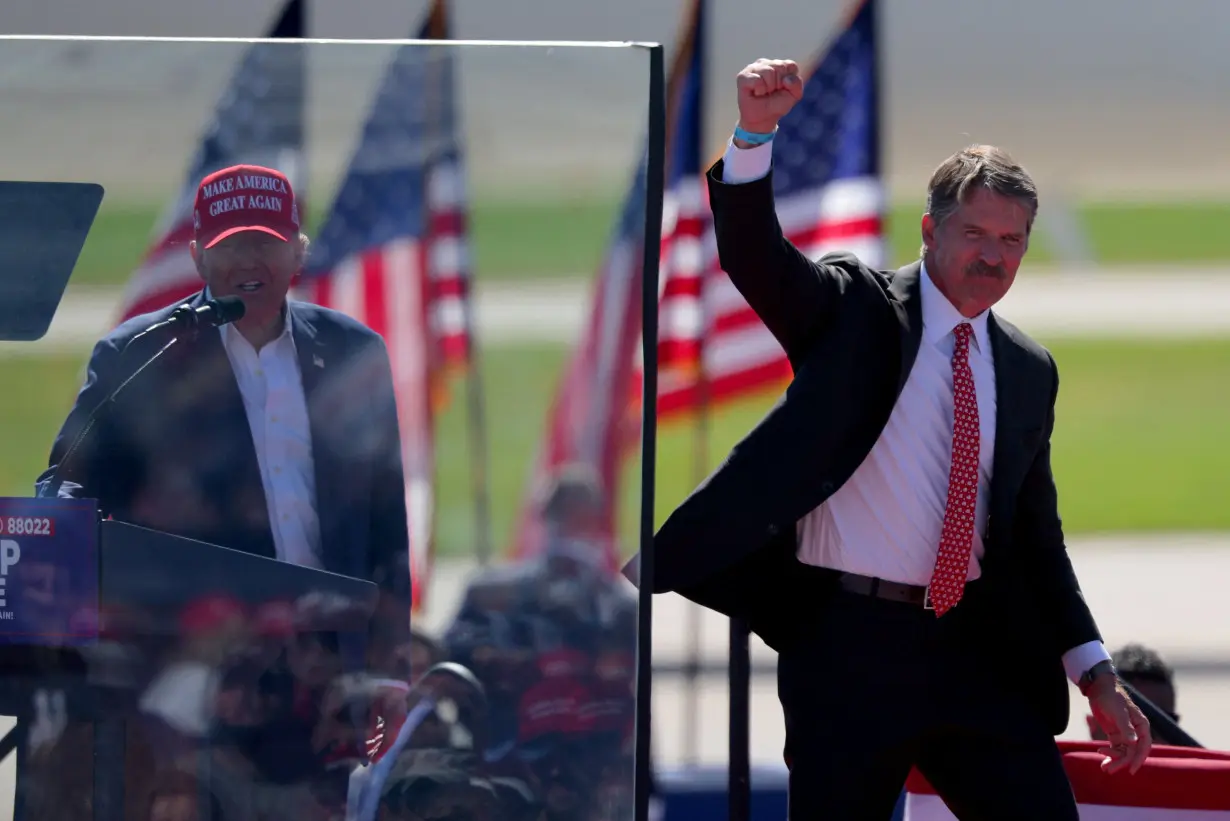
MOSINEE, Wisconsin (Reuters) -Donald Trump pledged in Wisconsin on Saturday to throw up unprecedented tariffs and clamp down on immigrants he said are stealing jobs and killing Americans, as he sought to solidify support among working-class and rural whites, a key part of his base.
Speaking at a regional airport in Mosinee, a town of about 4,500 people, the Republican presidential candidate warned that even allies like the European Union would face new trade restrictions if he wins the Nov. 5 election against Democratic nominee Kamala Harris.
He repeatedly presented migrants as a grave danger to Wisconsin, warning without evidence that immigrants in the country illegally could evict local residents from their homes.
"Crime is through the roof, and you haven't seen the migrant crime yet," Trump said. "It started, and it's vicious, but you haven't seen the extent of it yet."
Trump also warned, as he has in previous rallies, that the 2024 election could be the nation's last.
Support for the former president has eroded among most demographic groups over the summer when his Democratic rival, Vice President Kamala Harris, replaced President Joe Biden atop the Democratic ticket.
Nationally, Harris leads Trump among Hispanic voters by 13 percentage points, according to the latest Reuters/Ipsos poll, conducted in August; Biden led that demographic by just five points in May. Among Black Americans, she has been outperforming Biden by seven points.
But she has barely moved the needle among white voters, those same polls show. Whites without a college degree, long the linchpin of Trump's coalition, still favor him by 25 points, according to the latest Reuters/Ipsos poll. They favored Trump by 29 points when he was running against Biden.
Several Trump advisers and allies have told Reuters in recent weeks that maintaining his margins and driving turnout among working-class whites will be crucial if he is to defeat Harris.
That is especially true in northern "Rust Belt" states including Wisconsin, which skew white and have large rural populations. Trump won the presidency in 2016 in part by winning these areas by promising to bring back industrial jobs to the region.
"We're not going to watch our wealth and our jobs get ripped away from us and sent to foreign countries, and Wisconsin will be one of the biggest beneficiaries," Trump said of his proposed trade policies.
Mosinee, where Trump spoke Saturday, is near Wausau, a small city of about 40,000, but hours from the state's major population centers, Milwaukee and Madison.
Marathon County, where Mosinee is located, used to be politically competitive, having voted for Democrat Barack Obama in 2008. Since then, the county has veered right, favoring Trump in 2016 and 2020 by about 18 points both times.
While the Trump campaign has identified Hispanics and Black men as areas of growth for the Republican Party, much of Trump's campaigning in recent weeks has been in small Rust Belt cities and towns that have few of either demographic.
Trump's running mate, Ohio U.S. Senator JD Vance, is expected to hit relatively rural areas of the Rust Belt hard in the final weeks before the election, two Trump advisers told Reuters.
DEBATE ON HORIZON
The Saturday rally was one of the last public appearances Trump will make before his debate with Harris in Philadelphia on Tuesday. Many of his allies are pushing him to concentrate his attacks on policy and steer clear of deeply personal broadsides.
Trump did not concentrate on Harris' racial identity during his speech, which was laden with grievances, yet a recording the campaign played during the rally sounded like an imitation of Harris' laugh, which Trump has frequently derided.
Trump told the crowd he would purge the federal government, including public health and intelligence agencies, of corrupt actors.
He repeatedly attacked Fani Willis, the district attorney in Georgia who is prosecuting Trump for trying to overturn his 2020 defeat in that state to Biden.
Trump also said he would support modifying the 25th Amendment to the U.S. Constitution to make a vice president covering up a president's mental incapacity an impeachable offense. And he attacked the political leadership of Colorado and Maine.
Both states were the site of challenges to his ballot eligibility in the 2024 election. Colorado's Supreme Court ruled last year that Trump should not be on the ballot because of his alleged role in fomenting insurrection by trying to overturn his 2020 defeat, a decision the U.S. Supreme Court overturned.
Trump told supporters without evidence that Colorado authorities had ceded control of parts of the state to Venezuelan gangs.
"In Colorado, they're so crazy they're taking over sections of the state," Trump said. "And you know, getting them back will be a bloody story."
(Reporting by Gram Slattery; Editing by Ross Colvin, Alistair Bell and David Gregorio)

 UK inflation unexpectedly eases in December, which could reduce pressure in bond markets
UK inflation unexpectedly eases in December, which could reduce pressure in bond markets
 Body count from South African mine siege rises to 60
Body count from South African mine siege rises to 60
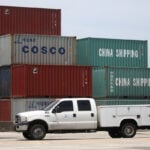 US importers rush in goods from China as Trump tariff threat looms
US importers rush in goods from China as Trump tariff threat looms
 Novak Djokovic breaks a tie with Roger Federer for the most Grand Slam matches in tennis history
Novak Djokovic breaks a tie with Roger Federer for the most Grand Slam matches in tennis history
 China's RedNote: what you need to know about the app TikTok users are flocking to
China's RedNote: what you need to know about the app TikTok users are flocking to
 British author Neil Gaiman denies ever engaging in non-consensual sex as more accusers come forward
British author Neil Gaiman denies ever engaging in non-consensual sex as more accusers come forward
